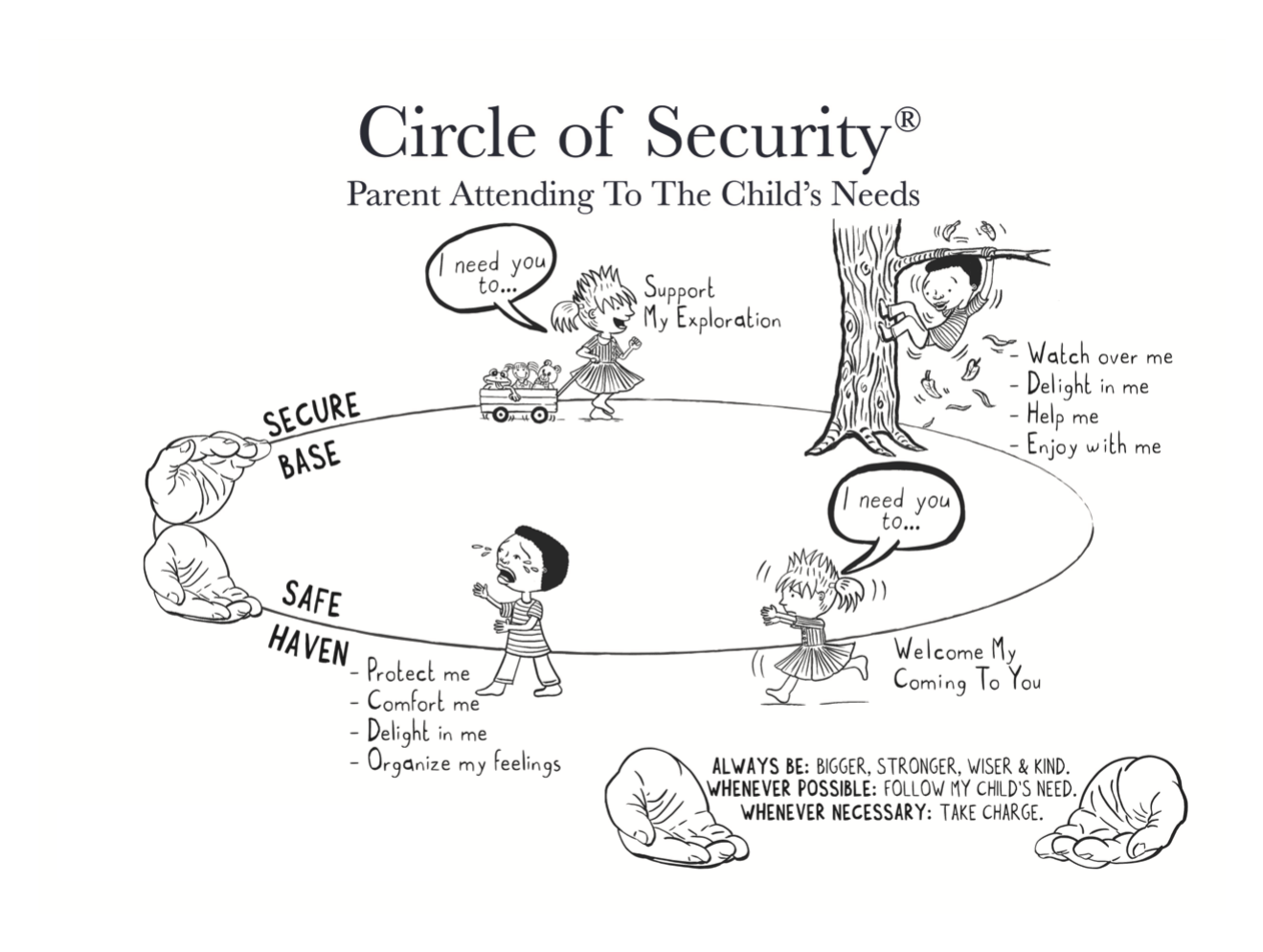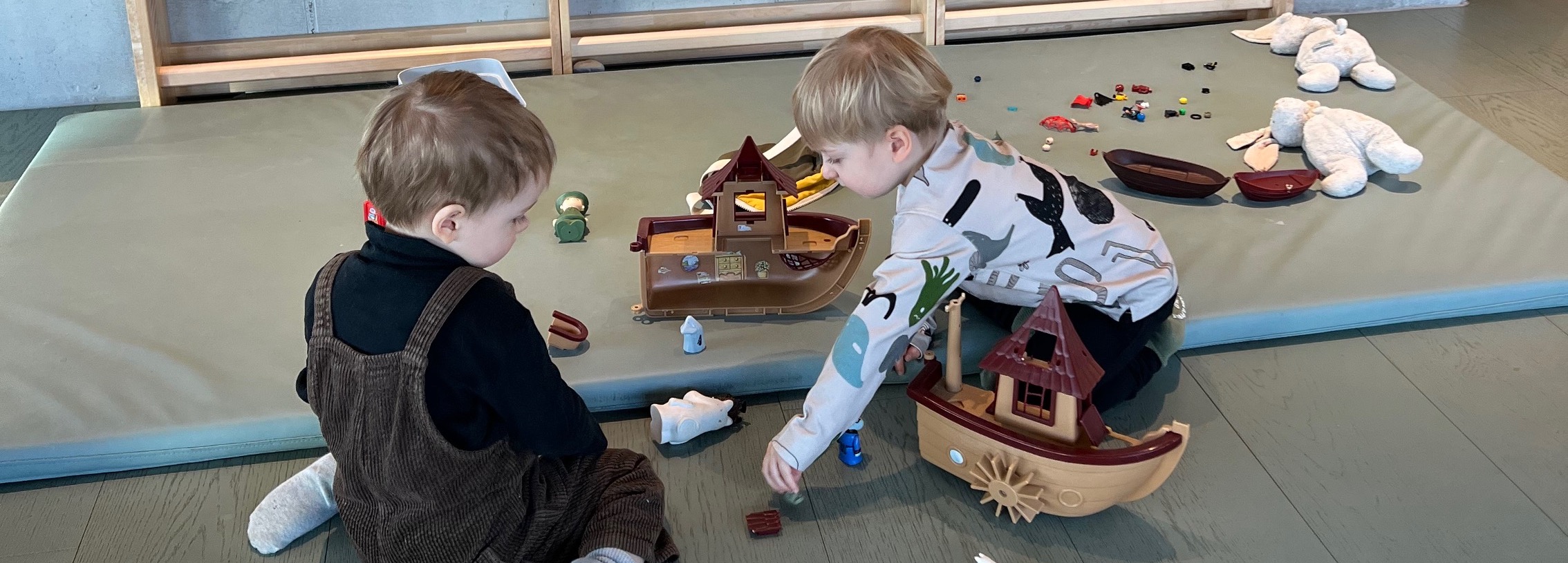Attachment means a whole lot to small children. The first and the most important attachment relationship is formed with the child's parent.
.png)
When the child grows up, also other important adults come into the child's life - for example educators. Therefore attachment is also a very important aspect to take care of in early childhood education.
If children feel safe and nurtured, it affects their overall well-being positively. Providing children with affection is a prerequisite for the healthy development of the brain, self-confidence, and the ability to form relationships in life.
In early childhood education, the stability of staff is very important when creating early attachment with children. Also, a calm, predictable, and regular daily schedule helps children feel safe.
The Circle of Security
The Circle of Security is a visual map of attachment. The “father” of the attachment theory is John Bowlby.
"Intimate attachments to other human beings are the hub around which a person's life revolves, not only as an infant or a toddler or a schoolchild but throughout adolescence and years of maturity as well, and on into old age. From these intimate attachments a person draws strength and enjoyment of life and, through what he contributes, gives strength and enjoyment to others. These are matters about which current science and traditional wisdom are at one."
Bowlby, J. (1980) Attachment and Loss: Volume 1. Attachment. Basic Books: New York.

Figure 1: The Circle of Security for the toddler and preschool years.
.png)

.png)
